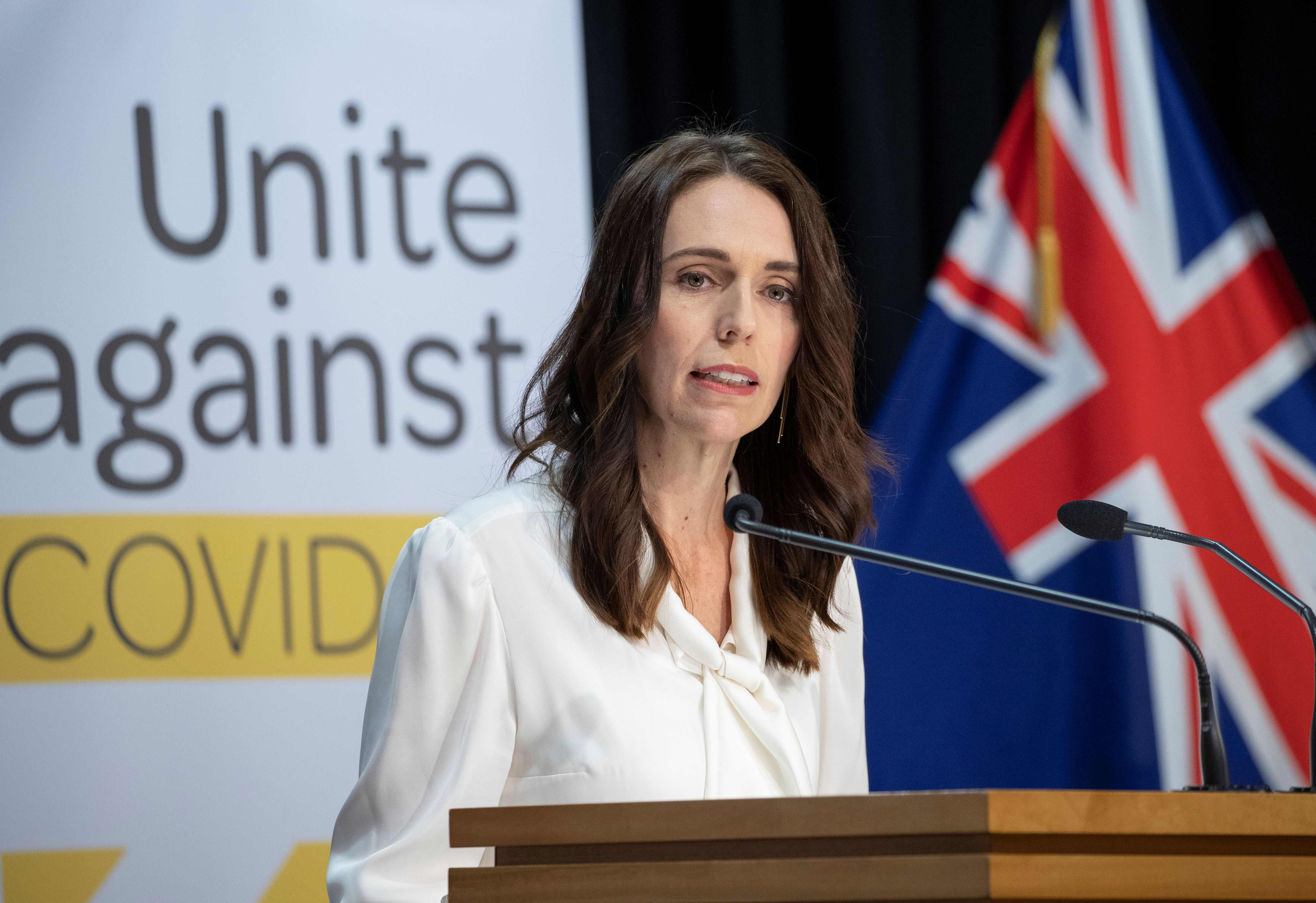New Zealand ends social distancing on Tuesday after eliminating coronavirus
Sign up now: Get ST's newsletters delivered to your inbox

New Zealand's Prime Minister Jacinda Ardern said all coronavirus measures in the country will be lifted, barring border closure restrictions.
PHOTO: AFP
Follow topic:
WELLINGTON (BLOOMBERG) - New Zealand will remove social distancing requirements after reporting zero active cases of Covid-19, indicating it has achieved its aim of eliminating the virus.
Prime Minister Jacinda Ardern said on Monday (June 8) that all remaining restrictions on people and businesses, other than strict border controls to keep the virus out, will be lifted at midnight tonight, paving the way for a resumption of normal life.
The South Pacific nation earlier reported that the last of its coronavirus patients has recovered, making it one of the few countries in the world to have successfully eradicated the pathogen.
"We united in unprecedented ways to crush the virus," Ms Ardern said at a press conference in Wellington. "Our goal was to move out the other side as quickly and as safely as we could. We now have a head-start on our economic recovery."
New Zealand has pursued an explicit elimination strategy rather than seeking to merely suppress transmission of the virus. It enforced one of the strictest lockdowns in the world, asking everyone to stay at home and allowing only essential services to operate. While this has almost certainly triggered a deep recession, the government says elimination of the virus should allow the economy to recover more rapidly than many of its peers.
The seven-week lockdown ended on May 14 and Cabinet on Monday decided it was safe to lower the nation's alert level to 1, which allows the removal of the last remaining restrictions. People will only be asked to keep track of who they have met and where they have been to aid contact tracing if future cases emerge.
Moving to level 1 "is a statement that we have achieved the goal of eliminating the Covid-19 virus from this country", said Prof Michael Baker, who specialises in public health at the University of Otago. "This is, however, only the first battle in what will be a long-term war against this virus. The threat from Covid-19 obviously remains while this pandemic continues across the globe."
The government is taking a cautious approach to the elimination milestone.
"We are confident we have eliminated transmission of the virus in New Zealand for now, but elimination is not a point in time, it is a sustained effort," Ms Ardern said.
MASTERCLASS
Ms Ardern's masterclass in crisis management has won her praise at home and abroad. Support for the Prime Minister and her Labour Party surged in recent opinion polls, forcing the main opposition party to replace its leader less than four months out from a general election.
But it is not a foregone conclusion that Ms Ardern will sweep to victory at the Sept 19 vote, with unemployment expected to soar in coming months.
The closed border is taking a heavy toll on the tourism sector, which was the nation's biggest source of foreign exchange earnings before the pandemic, and there is little prospect of it fully recovering until a vaccine is found.
There has also been criticism that New Zealand's response to the virus was too extreme, as neighbouring Australia appears to have achieved similar results with less stringent measures. During its lockdown it allowed more industries to continue operating, such as construction, and consumers were still able to get a haircut or buy a takeaway meal, keeping many workers on lower incomes employed.
However, there are early signs that New Zealand's status as a virus-free haven will work to its advantage. It is in talks with Australia to open a so-called travel bubble, and the Education Minister has said the country may become an even more desirable destination for foreign students, even if they need to serve a two-week quarantine on arrival.
NEW ZEALAND'S ELIMINATION STRATEGY EXPLAINED
The theory behind New Zealand's elimination strategy is that Covid-19 has a longer incubation period than influenza - an average of five to six days and as long as two weeks, compared with just two to three days for the flu.
That means authorities have time to identify and isolate those who have been in contact with an infected person before they themselves become infectious.
New Zealand recorded a total of 1,504 confirmed and probable cases of Covid-19 and 22 deaths. It hasn't had a new case for 17 days.

